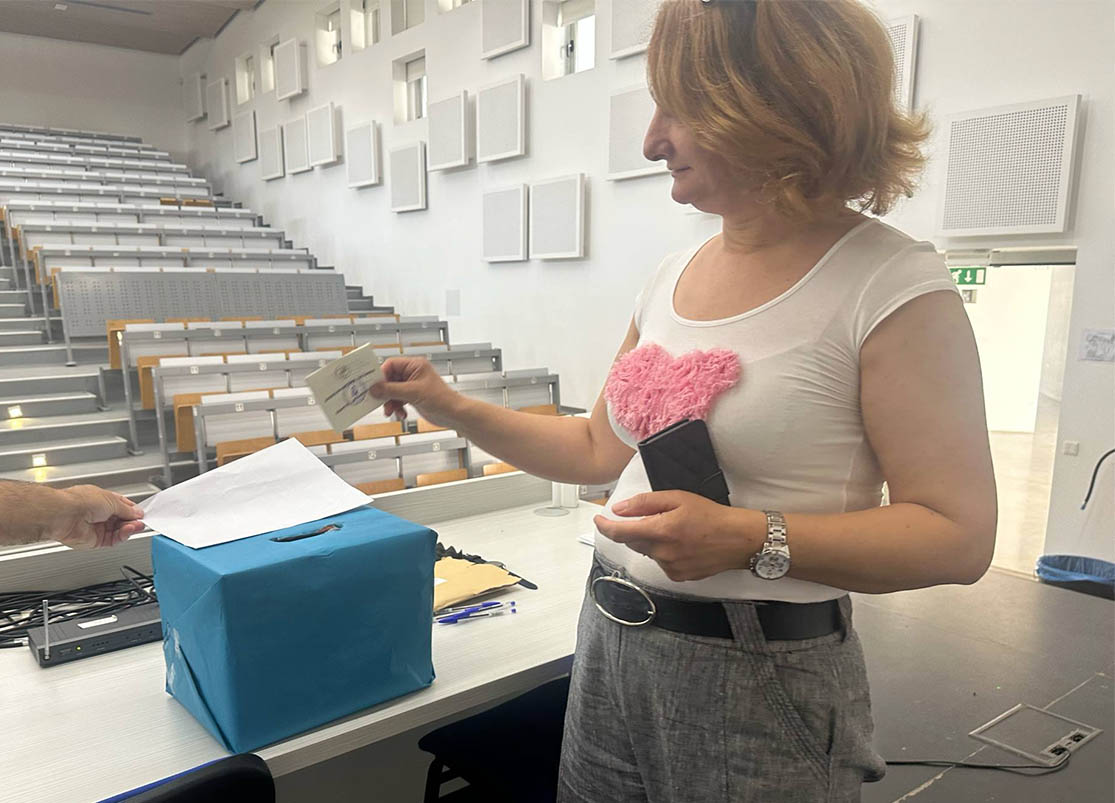An overwhelming majority of 5286 votes, or 91.85 per cent, of members of Oelmek, the secondary school teaching union, voted against the government’s new teacher evaluation plan on Thursday.
After the result Oelmek called on the government to “listen to the clear position of the teaching profession and withdraw the bill from Parliament in order to enable a substantive and comprehensive dialogue”.
It also called on the House of Representatives to return the bill to the education ministry for a “real dialogue” aimed at reaching an agreed proposal.
The proposed reform package is, according to the government, aimed at improving the flexibility and merit-based advancement in the education system, but has been opposed by the union, which has as such called on its members to express their dissatisfaction.
Oelmek head Demetris Taliadoros told the Cyprus News Agency that the education ministry had only accepted one of ten points submitted by teachers in response to the ministry’s original draft, and that this caused the need for a referendum.
After the vote, he said, the union will call an enlarged convention over the matter at the beginning of next month.
The issue of evaluation “directly concerns teachers and it would not be in the right direction for unilateral decisions to be taken [by the ministry],” Taliadoros said.
In the weeks leading up to the referendum, the union said that there had been no substantial discussion with teachers, as required by law.
The education ministry, meanwhile, expressed surprise at this assertion, stating that discussions had been ongoing for nine months and that the current proposal was the outcome of those discussions.
“The repeated references to a lack of dialogue are misleading,” Education Minister Athena Michaelidou said, adding that all stakeholders were aware of the process from the beginning.
Michaelidou said preliminary drafts had been made public and subsequently revised to reflect suggestions from unions.
She also said that despite the fact that Oelmek had chosen to withdraw from the dialogue shortly after the first draft was published, its members’ feedback had nonetheless been incorporated.
Government spokesman Konstantinos Letymbiotis had on Tuesday outlined the plan, saying the reform introduces a “multi-layered, scientifically backed evaluation model”, replacing the “decades-old practice of single-person assessments” with collective evaluations involving school heads and inspectors.
The assessments are expected to improve teacher performance and introduce effective mentoring and continuous professional development into the system and are not intended as a punitive measure, Michaelidou had said.
Teachers will now be assessed throughout their careers using clearly defined, measurable criteria and a new rank of “senior teacher” will be created, allowing experienced educators to be promoted without moving into the ranks of the administration, if they are ill-suited for them or do not wish to do so.
Oelmek disagreed with the ministry’s position on two key points, the first being the participation of headteachers in evaluating their teachers, which the union says would disrupt their professional relationship. The second is the composition of an appeals committee which would examine teachers’ objections to their evaluations.
The ministry had proposed that both school inspectors and the headteachers should jointly evaluate teachers, with the rationale that this would offer a more complete picture of teachers’ classroom skills.
On the second point, the ministry had proposed that the appeals body consist of the ministry’s permanent secretary and two of its management staff.
The teachers’ union rejected this idea and instead proposed a body comprising of a judicial officer, an academic, and a former education ministry official with teaching experience, and for the board’s composition to require parliamentary consent.






Click here to change your cookie preferences